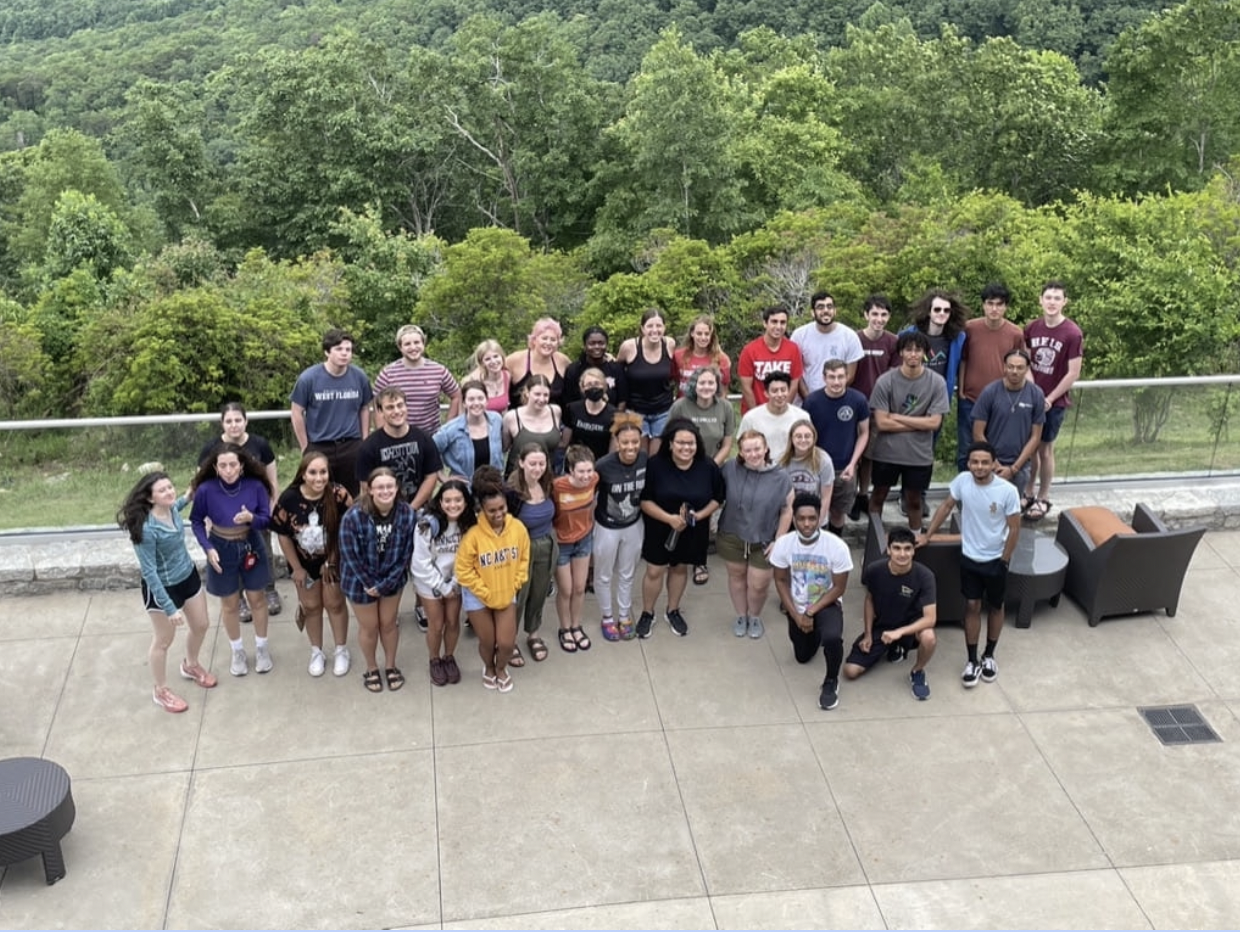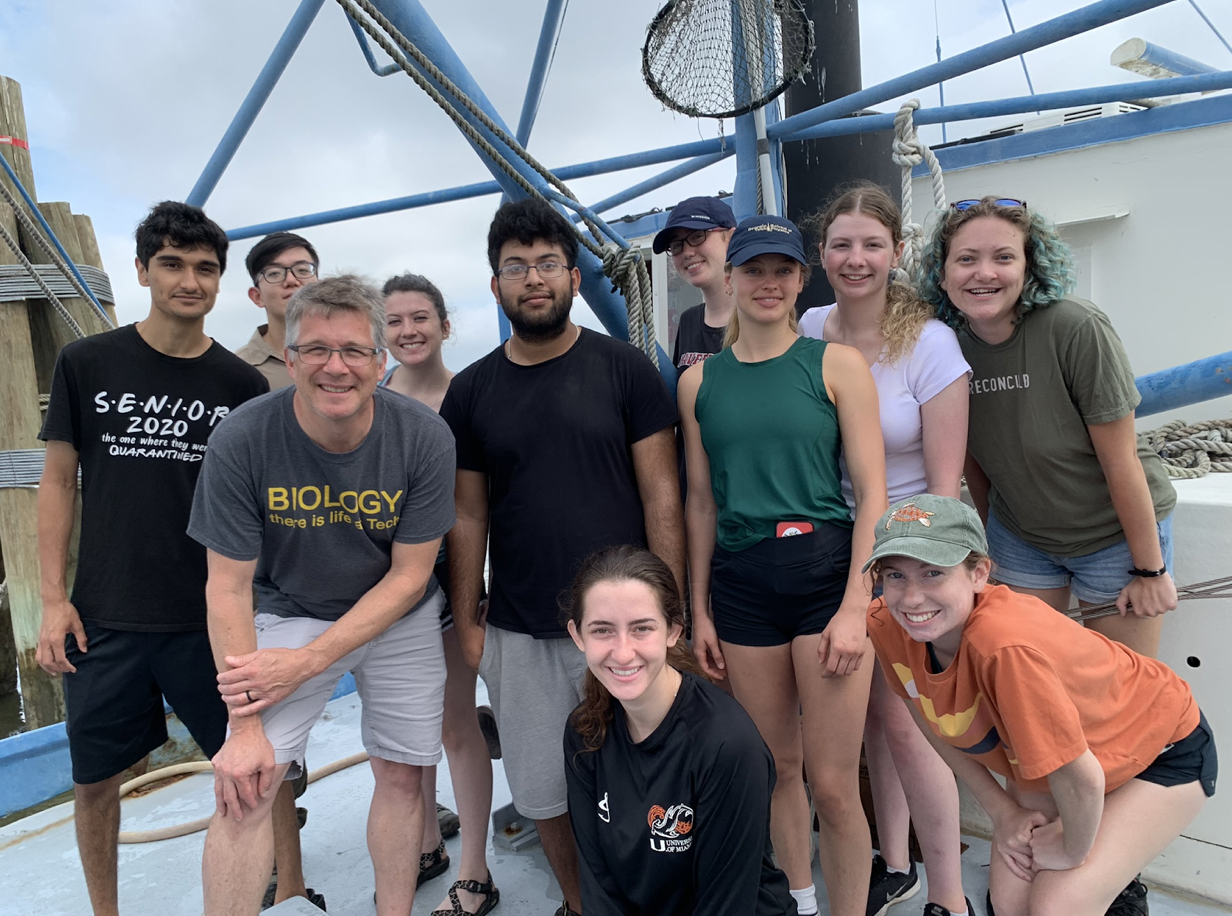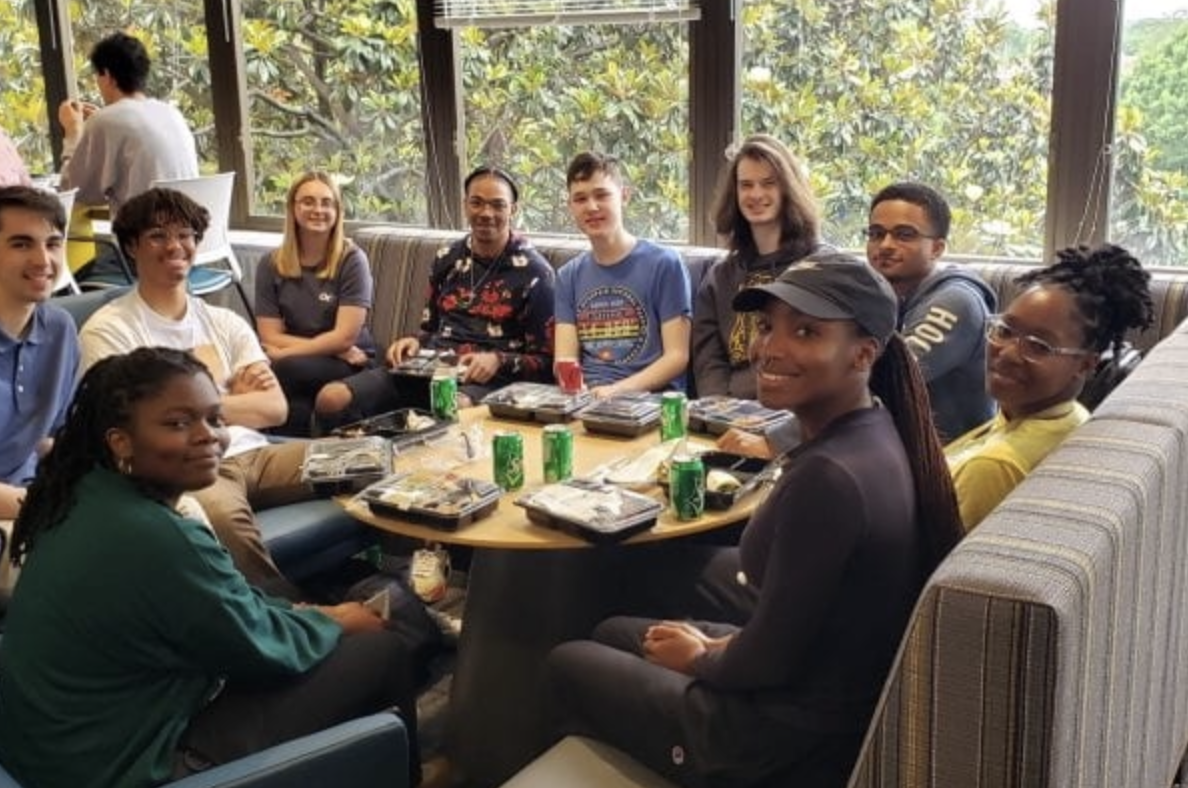
Jan 24, 2023 - Atlanta, GA
The NSF REU (Research Experience for Undergraduates) program is designed to provide meaningful research experiences to undergraduates who may not otherwise have the opportunity, with an ultimate goal of increasing matriculation in STEM careers and graduate school.
Most NSF REU programs are designed to pair students attending smaller and undergraduate-only schools with faculty and lab groups at larger host institutions for mentorship and a meaningful research experience.
Importantly, as NSF notes, the inclusion of historically under-represented groups in STEM (minorities, low socio-economic status, first generation students, veterans and women) will serve to broaden the STEM talent pool.
As such, most REU programs in the College of Sciences at Georgia Tech host a diverse cohort of approximately ten non-Georgia Tech undergraduates, who have limited research opportunities at their current institution. Each unique program's focus and requirements vary, so check individual program links for application guidelines and deadlines. Each of the six schools in the College of Sciences participate in the eight to 10-week program. The REU supplements — which include stipends, housing, and travel allowances — engage students in research related to a new or ongoing NSF research award. Application deadlines are typically in January and February each year, depending on the program.
“Georgia Tech has had a long, outstanding record of hosting REU students,” said College of Sciences Assistant Dean for Academic Programs Cameron Tyson. “We are delighted that we can offer programs affiliated with each of the six schools in the College of Sciences at Georgia Tech.”
Summer 2023 NSF REU programs in the College of Sciences at Georgia Tech are:
Aquatic Chemical Ecology (ACE) Summer Research Program
(Co-hosted by the Schools of Biological Sciences, Earth and Atmospheric Sciences, Chemistry and Biochemistry, and from the College of Engineering: Civil and Environmental Engineering, Chemical and Biomolecular Engineering.)
Students participate in research with one or more faculty, and learn about careers in science and engineering, and see how scientists blend knowledge and skills from physics, chemistry, and biology to investigate some of the most challenging problems in environmental sciences. Three areas of research activities covered by faculty in the Aquatic Chemical Ecology program include biological and geochemical transformations of chemicals in aquatic ecosystems, sensory biology and ecology of aquatic chemical communication, and ecological roles and consequences of chemicals in aquatic environments.
Broadening Participation Summer Undergraduate Research Program in Physics
(Hosted by the School of Physics)
This program includes a hands-on computational workshop, an overnight trip to a National Laboratory, a weekly Physics Frontiers Lunch and Learn seminar series, a half-dozen professional development seminars, and social activities with other REU students. At the end of the summer, participants will present their research to the School of Physics community and at a Georgia Tech REU Poster Symposium that includes REU participants from all the REU programs in the Georgia Tech College of Sciences.
Mathematics Research Experiences for Undergraduates
(Hosted by the School of Mathematics)
REU summer projects in mathematics are mentored by many different faculty, on topics ranging from fad formation, to random walks, tropical geometry, one bit sensing, extremal graph theory, and convex polyhedra. Students will have the opportunities to publish papers, win awards, and succeed in graduate school applications.
Broadening Participation in Atmospheric Science, Oceanography and Geosciences Research
(Hosted by the School of Earth and Atmospheric Sciences)
Each participant will work with a faculty member or research scientist and focus on a single research project, but will also gain a broad perspective on research in Earth and atmospheric sciences by participating in the dynamic research environment. This interdisciplinary REU program has projects spanning topics related to the geosciences, planetary science, atmospheric sciences, oceanography, and climate science. In addition to full-time research, undergraduate researchers will participate in professional development activities, seminars with faculty and research scientists, presentation and research poster symposiums, and social activities with other summer REU students.
Chemistry Function, Application, Structure and Theory (FAST)
(Hosted by the School of Chemistry and Biochemistry)
The Chemistry Function, Application, Structure, and Theory (FAST) Program’s objective is to provide a high-quality research experience, augmented by experiential learning components, for a diverse group of undergraduate students. The program will provide participants with encouragement and preparation to pursue advanced studies and/or careers in the sciences while emphasizing the importance of collaboration and interdisciplinarity in chemistry.
Human Neuroscience Research and Techniques
(Hosted by the School of Psychology)
Working with Georgia State University, this program gives students the opportunity to gain knowledge and hands-on experience with human neuroscience techniques such as electroencephalography (EEG) and functional magnetic resonance imaging (fMRI). Participants will also perform exciting research in the laboratories of Georgia Tech or Georgia State faculty mentors. Students will learn about neuroscience careers and tips for succeeding in graduate and medical school. The research areas of the faculty mentors are organized around three core neuroscience themes: Human Motor Control, Cognitive Processing, and Human Neurophysiology.
“These programs are an excellent opportunity for students, especially those from colleges and universities with limited research opportunities, to gain an immersive experience working alongside Georgia Tech faculty and their team on cutting-edge projects in science and mathematics,” added Tyson, who is also a faculty member in the School of Chemistry and Biochemistry. “We often see participants having a transformative experience and continuing on to graduate studies and pursuing a career in research.”
For more information on REU summer program details, requirements and application deadlines, interested students should visit the links to individual programs listed here.

